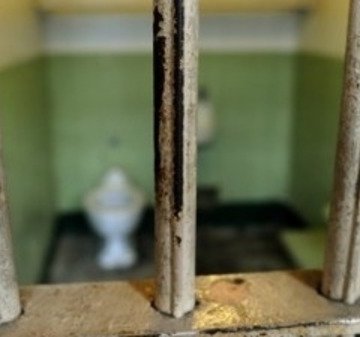- About
- Topics
- Picks
- Audio
- Story
- In-Depth
- Opinion
- News
- Donate
- Signup for our newsletterOur Editors' Best Picks.Send
Read, Debate: Engage.
An op-ed piece in the International New York Times brings us the first hand experience of a Syrian teacher and activist in Bashar al-Assad’s jails. She considers herself lucky to have only been manhandled, detained indefinitely and whipped by electric rods. Her crime? To support a left wing opposition party and found a women’s organization, which besides creating economic opportunities for women, works to promote peace at a local level. She recants her experience of others imprisoned with her who were not as fortunate.
Alise Mofrej was first arrested at a peaceful demonstration in the summer of 2012 in downtown Damascus. Abused at the hands of Baathist militia loyal to the Assad family she was then handed to the secret police. “The regime gave these thugs a blank check to terrorise anyone suspected of opposition sympathies.”
Released on bail only to be arrested again at a passport office 17 months later, she found herself in a prison cell, with more than 30 women and no access to a lawyer. Their charges ranged from relief activities in besieged areas to having family ties with members of the armed opposition. Torture was routine with about 40 documented techniques. The living sometimes slept next to the dead until the corpse was removed.
Speaking of her neighbour, a female doctor falsely accused of kidnapping a Syrian Army soldier, she describes her torture. Hung by her hair from the ceiling, she was doused with cold water and administered electric shocks till she lost consciousness for days at a time. Alise was released in a “reconciliation” between the army and rebels, which often occurred after the regime had besieged an area and subjected its population to starvation, prompting the resistance to lay down arms and cede control. Prisoner exchanges came as part of the deal.
Now seeking asylum in Beirut, Mofrej’s hope is to see the international community pressure all sides into resuming political negotiations based on the 2014 Geneva peace talks. “The first step toward a solution must be an end to the killings, detentions and disappearances.”
